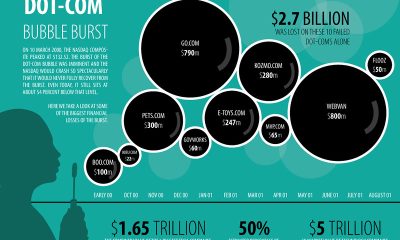Business
Why Banks and Energy Companies Could Be the Best Investments in 2023
2022 has been a difficult year in the market, with investors uncertain due to the war in Ukraine, inflation, and energy supplies. Variable and fixed income have both taken a hit, with the IBEX down 5%. Bankinter forecasts a 12% increase in 2023, and JP Morgan AM’s 2023 Market Outlook Report outlines the five key areas investors should focus on.

2022 has been quite a volatile year in the market. There has not been an asset that has been spared the ups and downs of investors, marked by the uncertainty caused by the war in Ukraine, inflation, and energy supplies. Equities have suffered heavily in recent months, with the Ibex accumulating a 5% fall, but so has fixed income, which many believed did not lose out on these investments. Many analysts define 2022 as the worst year in the history of fixed income.
Read more on the subject and find the most important business news of the day with the Born2Invest mobile app.
What to look out for next year?
In JP Morgan AM’s 2023 market outlook report, titled: “A bad year for the economy, a good year for markets,” the manager’s strategy team addresses five key areas that will be priorities for investors: the first of these is the rebalancing of fixed income with the return of bonds.
A statement with which Bankinter’s analysis and the market department agree, seeing several reasons for optimism, such as the remission of inflation and that the market takes it for granted that central banks will succeed in their fight against inflation. Specifically, he sees potential in two- and three-year sovereign bonds, as well as in credit, albeit always of good quality.
Johanna Kyrklund, CIO and co-chief investment officer at Schroders, explains that, compared to the volatility experienced in 2022, they expect interest rates, and therefore fixed income, to show more stability in 2023, which will allow investors to take advantage of the yields available. “Indeed, the attractiveness of bonds has shifted from being in their diversification benefits to being in their yields,” he says.
The second point that JP Morgan believes will be top of mind for investors is the rationale for the bullish view for equities; the third is income investment opportunities and dividend defense; the fourth, catalysts for an emerging market recovery. Finally, JP Morgan notes that the continued focus on sustainability should be on the radar.
Looking ahead to next year, the manager’s main question remains whether inflation will begin to moderate as economic activity slows. “If this is the case, central banks will stop raising rates and any recessions that may occur are likely to be moderate,” said J.P. Morgan AM EMEA chief market strategist Karen Ward.
Mike Bell, the firm’s global market strategist, said, “Next year is likely to be a difficult year for the economy. A combination of higher mortgage rates and high energy prices can lead to recessions in developed markets. More likely, however, markets will not be so surprised by a moderate recession next year.”
Looking ahead to next year, “although we foresee a complex macroeconomic backdrop, we believe income stocks could enjoy a good year with dividends more resilient than earnings. For those investors who are thinking of increasing their equity exposure, a bias towards a dividend strategy could perform well in this environment,” adds Hugh Gimber, strategist at the international asset manager.
In this scenario, Roberto Scholtes, the firm’s chief strategist, calls for a “clearly cautious strategy”, mindful of the “great statistical noise” that they foresee in the coming months. The research department advises paying attention to sectors benefiting from rising interest rates and with pricing power. According to their analysis, energy and financial companies, especially those in Europe, have very attractive valuations and high shareholder remuneration. In the long term, the former are expected to make the transition to clean energies, which will help to reduce the environmental stigma they used to have.
For its part, Bankinter points to five key sectors for 2023. Banks, infrastructure, luxury consumer goods, luxury cars, renewable energies, and technology. The entity points to banks as one of the sectors that will benefit the most in 2023 from the rise in interest rates, as explained by Esther Gutiérrez, an analyst at the entity.
Among the financial entities, they prefer those of the Old Continent with options such as Unicredit or Intesa. However, they also count on entities such as Morgan Stanley or Bank of America, among others. The reasons why they opt for European banks is because they focus more on the real economy, while U.S. banks divide their business into commercial and investment banking. In addition, the potential for interest rate rises in the US is lower than in the Eurozone, because in the US “the best has already been experienced”. And thirdly, because in the US the mortgage market is already being financed at 6% and the default rate is higher at this interest rate than in Europe (around 4%).
Johanna Kyrklund, CIO and co-chief investment officer at Schroders, explains that in equities they believe valuations are not as attractive as bonds and need earnings expectations to cool further due to the risk of recession. What could trigger a strong recovery in equities? “Any evidence of a weakening US labor market would allow the Fed to reverse its rate hike path, and that would enable fixed income to adjust lower and equities to regain ground.”
Álvaro Antón, Country Head and Iberia Distribution Director at abrdn, points to three sectors as the main ones for 2023 investments: luxury and tradition, responsible investment and digital revolution. “There are many companies that successfully combine Europe’s attractive heritage and history with innovation and cutting-edge technology,” expounds the arbdn analyst.
Second, the continent continues to leverage its strengths in sustainability and green technologies. And finally, investors continue to undervalue Europe’s growing strengths in industrial digitalization. “Within these segments, across the continent there are firms with strong and competitive market positions benefiting from structural growth,” he points out.
__
(Featured image by iqbalnuril via Pixabay)
DISCLAIMER: This article was written by a third party contributor and does not reflect the opinion of Born2Invest, its management, staff or its associates. Please review our disclaimer for more information.
This article may include forward-looking statements. These forward-looking statements generally are identified by the words “believe,” “project,” “estimate,” “become,” “plan,” “will,” and similar expressions. These forward-looking statements involve known and unknown risks as well as uncertainties, including those discussed in the following cautionary statements and elsewhere in this article and on this site. Although the Company may believe that its expectations are based on reasonable assumptions, the actual results that the Company may achieve may differ materially from any forward-looking statements, which reflect the opinions of the management of the Company only as of the date hereof. Additionally, please make sure to read these important disclosures.
First published in EL NDEPENDIENTE, a third-party contributor translated and adapted the article from the original. In case of discrepancy, the original will prevail.
Although we made reasonable efforts to provide accurate translations, some parts may be incorrect. Born2Invest assumes no responsibility for errors, omissions or ambiguities in the translations provided on this website. Any person or entity relying on translated content does so at their own risk. Born2Invest is not responsible for losses caused by such reliance on the accuracy or reliability of translated information. If you wish to report an error or inaccuracy in the translation, we encourage you to contact us.

-

 Crowdfunding1 week ago
Crowdfunding1 week agoPMG Empowers Italian SMEs with Performance Marketing and Investor-Friendly Crowdfunding
-

 Markets5 days ago
Markets5 days agoMarkets Wobble After Highs as Tariffs Rise and Commodities Soar
-

 Markets2 weeks ago
Markets2 weeks agoThe Big Beautiful Bill: Market Highs Mask Debt and Divergence
-

 Africa2 days ago
Africa2 days agoORA Technologies Secures $7.5M from Local Investors, Boosting Morocco’s Tech Independence

























